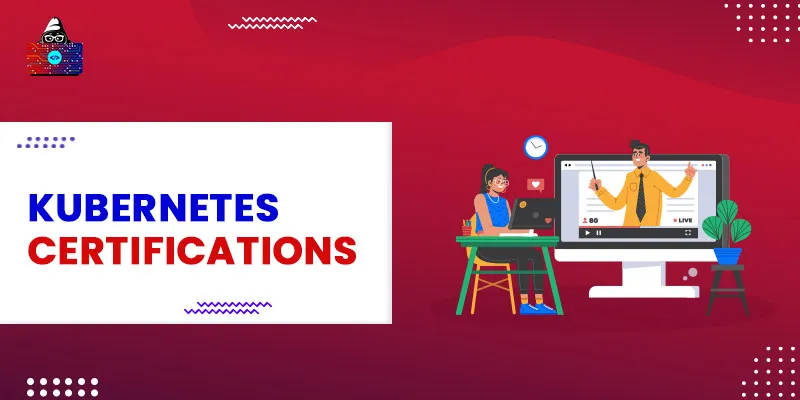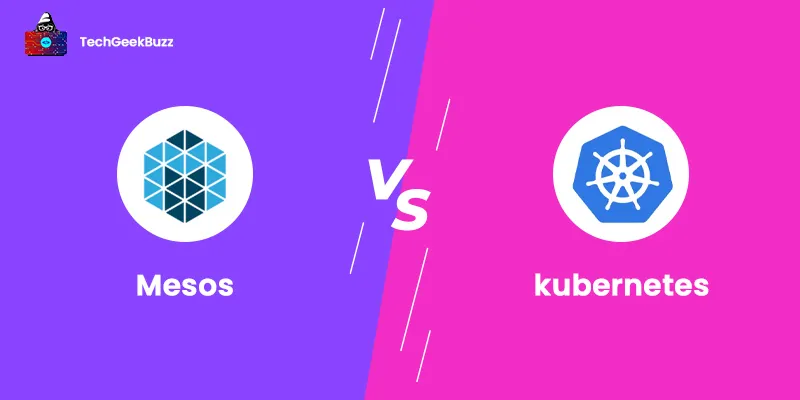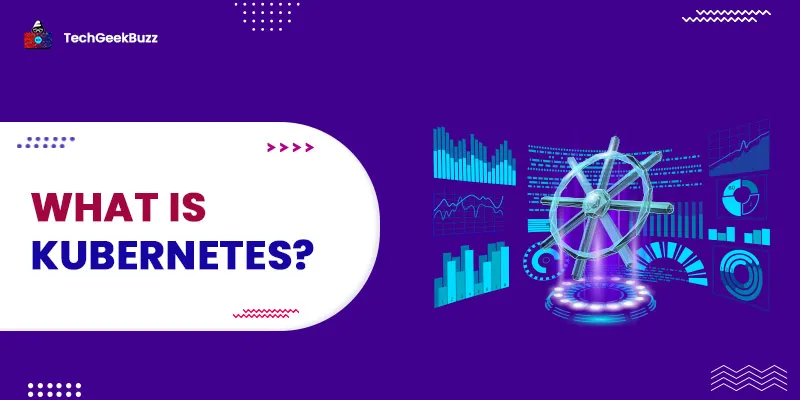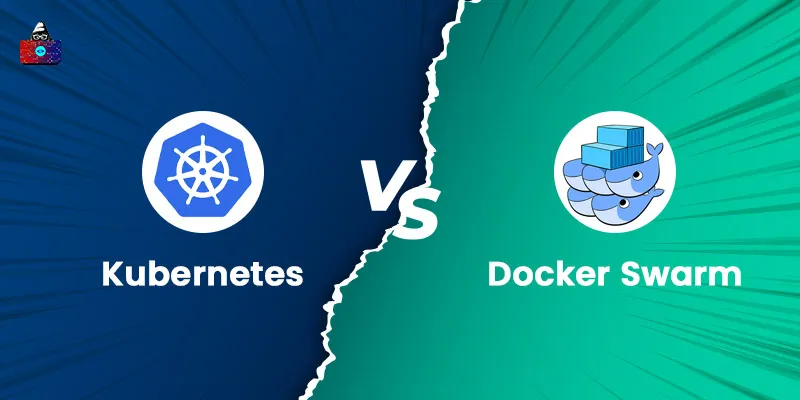Do you want to learn Kubernetes? If yes, here we have listed the best Kubernetes Certifications for you!
Any application produced in one environment usually crashes or underperforms in other environments. Another difficulty with the physical servers is constant resource allocation, which becomes essential when several applications are hosted on a single server. There have been instances where one application occupies a large number of resources, causing other applications to struggle and eventually crash.
Virtualization, which allows several virtual machines to be hosted on a single CPU, is the most effective solution to this problem. One such way of doing so is containerization, which is currently adopted by most small and big companies. Since Kubernetes and other container technologies are growing in popularity, the opportunities for professionals having expertise in the same are also increasing rapidly.
What is Kubernetes?
Kubernetes is an open-source container orchestration technology designed and developed by Google. It allows automation of the various processes involved in application development, namely deploying, managing, and scaling containerized applications. Moreover, individuals can schedule and operate containers on clusters of physical or virtual machines, which makes Kubernetes ideal for cloud app development. The following are the main advantages of Kubernetes:
- It efficiently orchestrates containers over several hosts.
- It ensures optimal usage of hardware and resources.
- Increases the amount of storage available for running applications by distributing the resources equally.
- Uses container-based apps for scaling your solutions.
- Declaratively control services to ensure that deployed applications run in the desired way at all times.
- Auto-placement, auto-restart, auto replication, and autoscaling paradigms enable health-check and self-healing of apps.
The Need for Kubernetes
Managing containers effectively in a production environment is a must. Kubernetes is an open-source platform that aids in the effective administration of containers. It is a container-orchestration system for automating application deployment, scalability, and management. Moreover, Kubernetes provides a platform for resiliency in distributed systems. The following are the main features of Kubernetes:
- Deployments of containers.
- Autoscaling, service discovery, and load balancing.
- Persistent storage.
Best Kubernetes Certifications
Below are the top-rated certifications that can help you become a certified Kubernetes administrator:
1. Free Kubernetes Course (LinkedIn Learning)
If you want to master Kubernetes, which is among the most important DevOps tools and technologies, then this certification may be the right pick for you. This intermediate-level Kubernetes certification course begins with advice on how to set up the essential software for attempting the lectures. Building a small application and deploying it via the Kubernetes dashboard are some of the first steps. Following that, the lesson progresses to more advanced topics, including databases and APIs. The entire set of study materials and videos has been created to be time-efficient and well-organized.
Features
- The videos will walk you through every step, right from setting up the infrastructure to deploying complex apps.
- The lectures offer a step-by-step guide on getting started with the exercises.
- Exercises are accessible in both online and offline modes.
- The entire study package is available for free.
- The course is suitable for students, software developers, and DevOps engineers.
2. Google Kubernetes Certification
This Google Cloud certification aims to help you get basic knowledge about the fundamentals of the Kubernetes Engine. If you use Google Cloud Platform to create new solutions or integrate current systems, application environments, and infrastructure, this course is for you. Also, the course is an ideal choice for application developers, cloud solutions architects, DevOps engineers, and IT managers.
Through this course, you'll be exposed to command-line tools, a Linux environment, and web server technologies like Nginx. Also, you’ll learn the Container basics, the process of deploying apps to Kubernetes using the CLI, and building up a continuous delivery pipeline using Jenkins.
Features
- This course is a solid option for aspiring Cloud Architects because it includes lectures and graded practical and theoretical projects focused on Kubernetes.
- The educator makes use of visualizations to teach the lessons in an entertaining and interactive way.
- The section has been carefully planned to ensure that students get the most out of the course.
3. Docker and Kubernetes: The Complete Guide
This course is an excellent way to start learning how to deploy any type of web application using Kubernetes. No prior experience of Kubernetes is required to enroll in this class because it is primarily aimed at beginners.
The course starts with the fundamentals to make you comfortable with the topic before going on to utilizing Docker CLI commands and creating custom images, among other things. Also, you will develop a strong understanding of all the key functionalities of Kubernetes as well as hands-on experience by the end of the classes.
Features
- Helps you learn how to inspect and debug containers and master the Docker CLI.
- With Github, Travis CI, and AWS, you'll learn how Kubernetes works behind the scenes and construct a CI + CD pipeline from the ground up.
- Discuss how to deploy a production-ready Kubernetes cluster using Google Cloud.
- Offers 268 lectures, 17 articles, 3 downloadable resources, and unlimited access for the rest of your life.
4. DevOps using Kubernetes and Docker (Hands-on)
For creating container-based apps that millions of people can use, scalability is something that should be taken care of sooner or later. This Kubernetes course is developed by DevOps professionals and software engineers who will assist you in dealing with app scalability with the help of the popular container orchestration platform.
This certification will help you learn how to deploy real-world applications. Instead of entire theoretical teachings, this program strongly emphasizes practical issues. You will find it easier to understand the lectures if you are familiar with the command line, web principles, Docker, and containers. Before working with large-scale apps, the classes begin with the deployment of basic small-scale apps.
Features
- Learn how to work efficiently with Kubernetes.
- There are numerous practical exercises to help you fully grasp the concepts discussed during the lectures.
- The topics covered in the classes are among the most in-demand abilities in the industry.
- It has 42 video lectures, 14 articles, and 1 supplementary resource that you can access for the rest of your life.
5. Learn DevOps: The Complete Kubernetes Course
This is one of the best Kubernetes certifications that will teach you how to deploy, use, and maintain containerized applications with ease. The instructor will demonstrate how to use Docker to build apps in containers and deploy them to a cluster. Also, the course guarantees that you get the most out of your journey by putting equal focus on practical tasks and theoretical sessions.
Features
- It offers clear instructions for installing and configuring various development tools required to work with Kubernetes.
- To gain better knowledge, you can follow along with the demonstrations, practice with the examples provided, and complete assignments.
- This course does not require any prior knowledge of Kubernetes.
- The course comprises multiple modules containing short lectures to speed up the learning process.
6. Kubernetes Hands-On - Deploy Microservices to the AWS Cloud
This course is an amazing pathway to work on a genuine Kubernetes project and gain experience while learning about them blow by blow. You'll be working on the latest concepts throughout the course, and the course doesn't necessitate you to be a developer or know any programming languages.
Learn how to deploy containers to a cluster, use Prometheus and Grafana to monitor a live cluster, manage alerts, and much more. The lessons have been created in such a way that they can benefit both beginners and advanced students.
Features
- The lectures take you through all the concepts you'll need to know to work with Kubernetes.
- Instructors offer recommendations and advice on optimal practices.
- Demonstrations and step-by-step instructions will help you understand the concepts better.
- You get the chance to work on projects and test your knowledge.
- With the instructor's constant direction and support, you'll be able to explore and understand a variety of interesting topics.
7. Kubernetes for the Absolute Beginners – Hands-on
This course is for individuals who are completely new to Kubernetes. All of the crucial topics and concepts are concisely defined, making it easier for students to follow along. Despite the fact that this is a beginner's course, practical experience is given equal weight. The exercises assist you in developing confidence in the concepts presented in the video lectures. You will be able to deploy your apps on the Kubernetes platform once you have completed this certification.
Features
- The lectures go over each concept in great detail and at an ideal pace.
- Learn how to develop YAML configuration files, deploy applications, and much more.
- The course content is divided into multiple sections to make it easier for you to understand the concepts.
- You will get hands-on experience working with Kubernetes along with gaining theoretical knowledge.
- Full lifetime access to 44 lectures, 10 articles, 1 supplemental resource, and 37 coding exercises.
- You can get a certificate for the course as well for a small fee.
8. Certified Kubernetes Administrator (CKA)
The Certified Kubernetes Administrator (CKA) certification was created as a collaborative effort by the Cloud Native Computing Foundation (CNCF) and The Linux Foundation to expand the Kubernetes ecosystem. It helps developers to create their credibility in the job market and facilitates companies to hire them for the designated roles.
The CKA certification allows you to learn the skills, competencies, and information required to fulfill the duties of a Kubernetes Administrator. Also, you can take the CKA exam, which is an online test that requires you to complete a series of activities using the command line.
Features
- You will learn to create and maintain container-based applications.
- Helps you to understand the core concepts of Kubernetes.
- You will get familiar with networking, scheduling & security, and cluster management.
- Explore storage and troubleshooting processes.
- It offers an ideal path to becoming a Kubernetes certified administrator.
9. Kubernetes from A to Z
If you are someone who wants to learn one of the most popular and cutting-edge technology, then this certification is worth a look. Created by Stefan Thorpes, DevOps Evangelist, and Samy Mkacher, renowned Udemy instructor, this is a course that helps you to get started with Kubernetes.
Intended for beginners, the lectures in this course cover the vital components of Kubernetes and help them to gain a basic understanding of the concepts. The course also teaches you how software development can be simplified using the concepts discussed within the lessons.
Features
- All the basic and vital concepts of the Kubernetes are thoroughly covered.
- Tons of exercises to solidify your knowledge.
- Each topic is covered in an elaborate manner with proper examples.
- 26 lectures + 1 supplemental resource + lifetime access
- Available at nominal pricing on the e-learning website Udemy.
10. Fundamentals of Containers, Kubernetes, and Red Hat OpenShift
This certification is worth considering if you want to work efficiently with Kubernetes. This course, created by Stefan Thorpes and Samy Mkacher, will help you understand the basics and get started with Kubernetes. Being one of the best Kubernetes certifications, this course covers topics like container image development and administration.
The lectures will walk you through the entire process of creating and deploying apps using the Kubernetes platform. There are also talks on developing and deploying applications utilizing Red Hat OpenShift's features. This is one of the greatest online courses if you want to use the Kubernetes platform for application deployment and aren't sure where to start.
Features
- Because it is an introductory course, each idea is explained from scratch.
- The course comes with various exercises to testify your Kubernetes knowledge.
- Learn how to use Docker, Kubernetes, and the Red Hat OpenShift Container Platform.
Conclusion
Kubernetes certification courses allow you to eventually work with top IT companies and understand the container architecture. An individual’s expertise gets acknowledged with the help of these certifications and increases the chances of her being selected for the job. Students get a professional learning environment as well as well-written lessons that will educate them on every facet of Kubernetes and containerization. They will also get hands-on experience in container and cloud development.
People are also reading:





Leave a Comment on this Post